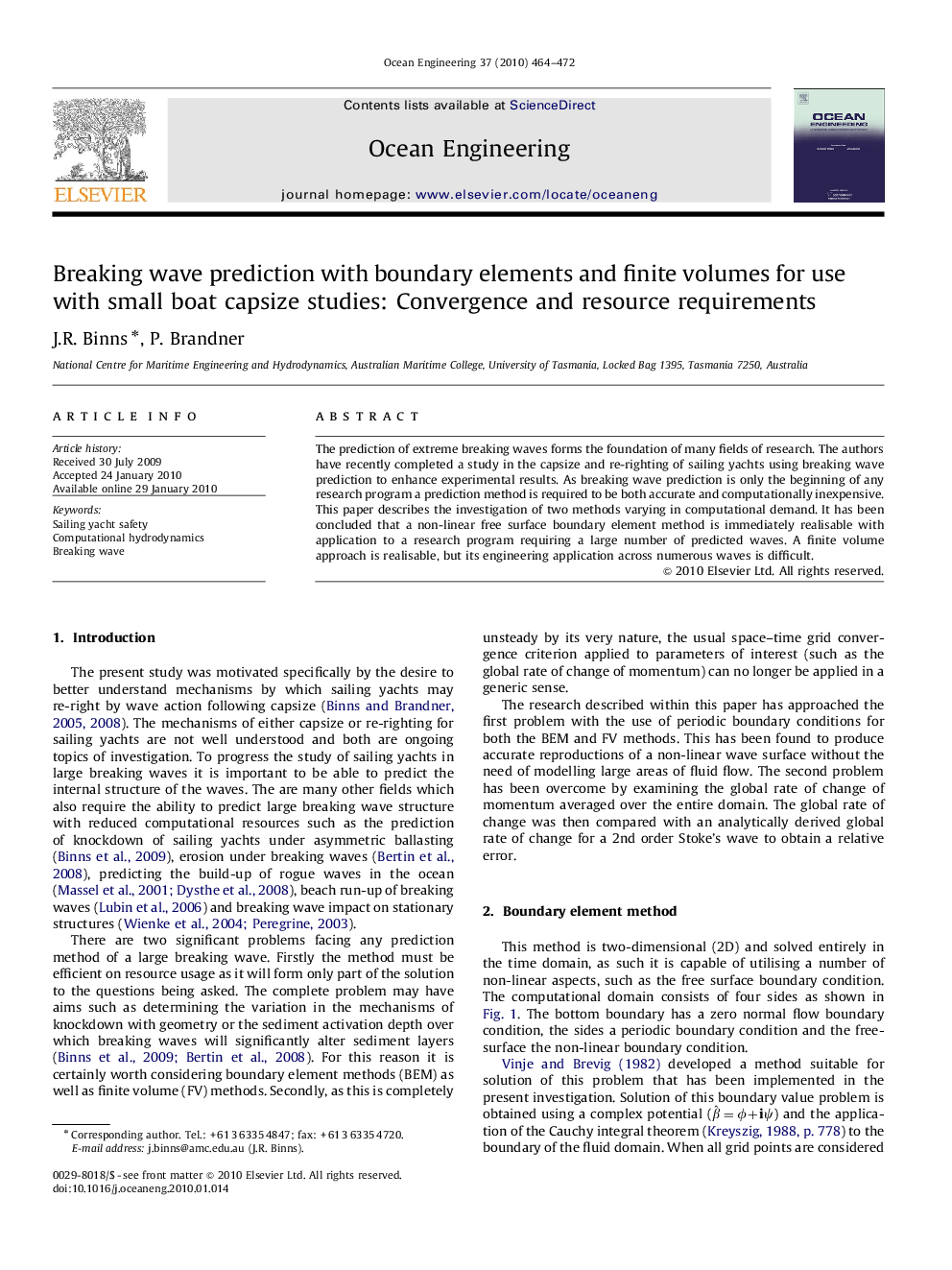| Article ID | Journal | Published Year | Pages | File Type |
|---|---|---|---|---|
| 1726854 | Ocean Engineering | 2010 | 9 Pages |
Abstract
The prediction of extreme breaking waves forms the foundation of many fields of research. The authors have recently completed a study in the capsize and re-righting of sailing yachts using breaking wave prediction to enhance experimental results. As breaking wave prediction is only the beginning of any research program a prediction method is required to be both accurate and computationally inexpensive. This paper describes the investigation of two methods varying in computational demand. It has been concluded that a non-linear free surface boundary element method is immediately realisable with application to a research program requiring a large number of predicted waves. A finite volume approach is realisable, but its engineering application across numerous waves is difficult.
Related Topics
Physical Sciences and Engineering
Engineering
Ocean Engineering
Authors
J.R. Binns, P. Brandner,
